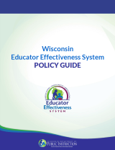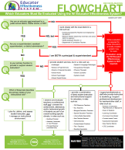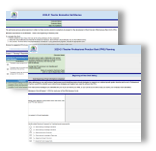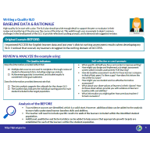
Professional Development and Training
Resources
2022 Danielson Framework for Teaching
Starting in the 2024-25 school year, districts and independent charters in the Wisconsin Educator Effectiveness (EE) System state model must implement the 2022 Danielson Framework for Teaching (FfT) as the framework for the evaluation of teaching. This updated framework features many improvements over the 2013 version previously used with a focus on:
Educational rigor and resources for all students
Support for prioritization and flexibility based on local context
Supporting social and emotional learning
Authentic engagement with families and communities
Knowing and valuing students
Alignment of the structure and language of the framework
WI Resources to support the transition to this new framework, include:
WI Teacher's Overview to the
2022 Danielson FfT
(coming in August)
2022 Danielson FfT Transition Conversation Points & Resources
for Administrators
(coming in August)
In the DPI 2024-25 evaluator training:
2022 FfT Component Alignment - components aligned to 2022 FfT themes
2022 FfT Definitions & Concepts
Danielson Group resources:
FfT At-a-Glance - free from Danielson Group website, registration required
Required Processes & Flexibilities
What's Required? 6 EE Processes
Brief overview of the six learning-centered processes required in the System. See the more detailed individual requirements resources on this page for descriptions of robust implementation that lead to meaningful results.
EE System Flexibilities
Available implementation options that can streamline EE activities to reduce workload and provide professional supports.
EE in Practice
Research results on the EE System linked below indicate that robust, learning-centered systemic implementation of the EE System contributes positively to schools by improving professional performance feedback and student achievement, as well as closing achievement gaps. Findings also suggest that the Wisconsin EE System improves school culture and staff retention rates. These resources give a snapshot of beginning, intermediate, and advanced levels of implementation for each of the six EE System required processes that can strongly contribute to positive outcomes.
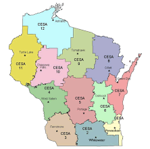
Additional Supports
CESA Collaborative Educator Development & Support Leaders
NEW 2023-24 CESA Services to DPI-model Schools
DPI-model schools can access no-cost and low-cost services to provide EE support to:
- build your school culture
- center your EE System processes on learning
- embed EE practices in your district goals and initiatives
- develop your instructional leadership skills
- design a combination of topics to meet your local needs
Check out the flyer for additional information.


